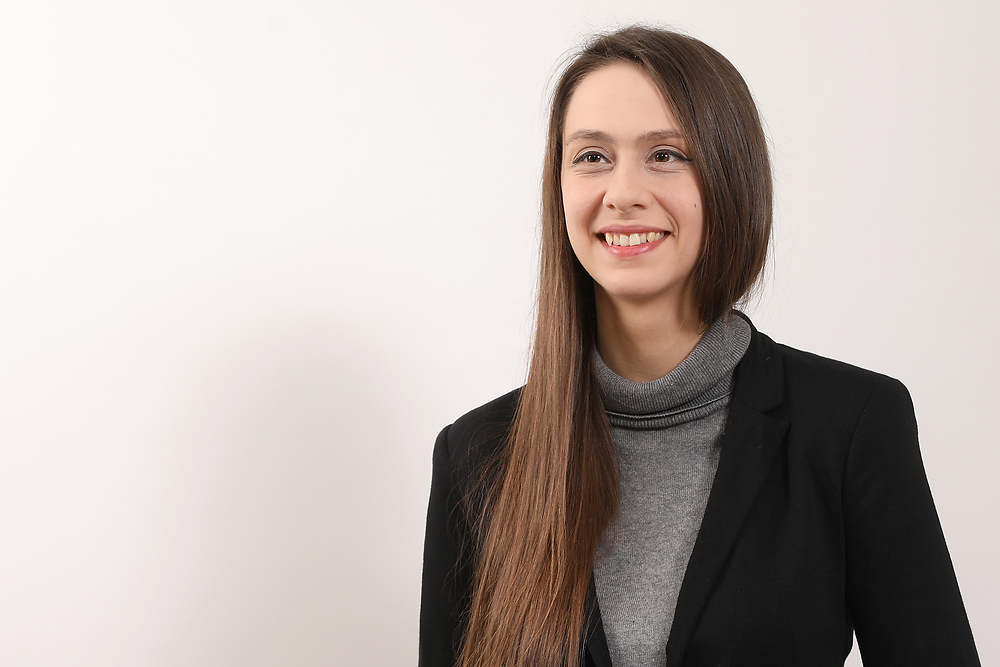September 14, 2021 | News | Rostock´s Eleven
Sophie Lohmann to Represent MPIDR in Rostock Research Competition

© MPIDR
What is the best path to success? MPIDR Researcher Sophie Lohmann has spearheaded an experiment with language learners that radically changes the way we look at successfully learning a language. She will present her results at the "Rostock's Eleven" research competition on September 15, 2021.
At the start of the new year, we often set resolutions with great intentions. Whether it is implementing better habits or learning a new skill, we often follow the tips of personal development books, take the approach of starting small, and hope for progress. But that's often not the best way, as Sophie Lohmann discovered. The scientist at the Max Planck Institute for Demographic Research (MPIDR) has found that a more radical approach towards achieving your goal leads to greater success.
Her experiment with language learners showed that study participants who wanted to study for significant periods of time every day actually ended up practicing French up to 40 percent longer than the control group. Moreover, these participants did not give up any earlier than those who had set aside only a short language-learning session each day. Ultimately, this resulted in greater overall learning success for this group.
Study participants are presented with conflicting learning approaches
A total of almost 300 people took part in this study. Initially, all participants were asked about their language learning behaviors in a short survey every day for a week. By the end of the week, just under 200 people remained in the study.
One-third of the participants received research information showing that radical changes resulted in the greatest learning success. On the other hand, another third of the participants read that researchers found that the strategy of taking small, careful steps was best – not getting carried away and thus making steady progress. The final third of participants, the control group, were not given any further information about successful learning strategies.
Each participant then reported how long they would like to practice French the next day and throughout the week. The following day, participants were then asked how long they had actually practiced the day before.
Those who are motivated are more likely to achieve their goals with radical changes
“For study participants who were highly motivated on their own and had a lot of self-control, the radical change strategy worked great,” says Sophie Lohmann. “The only problem was, not everyone’s actions went according to their ideal plans,” adds the researcher. There was potentially a lack of prior knowledge among the participants about what big or small changes in language learning mean. In addition, some participants may not have had the confidence or desire to follow through with the learning phase.
“We conclude that learners are often demotivated by small steps, because they are slow to see improvements in themselves,” says Sophie. In addition, the strategy of small, gradual steps tempts learners to postpone tasks. Large steps, on the other hand, often challenge learners more and spur them on to achieve their goals.
Original Publication
Lohmann, S.: Going all in or going slow: Preferences for radical versus incremental trajectories of behavior change. Doctoral dissertation, University of Illnois at Urbana-Champaign (2019).
About Rostock's Eleven
Rostock's Eleven is a joint initiative of all research institutions in Rostock: Eleven young scientists from eleven research institutes in Rostock present the results of their research to eleven science journalists from all over Germany. At the close of the event, the best presentation will receive a prize.